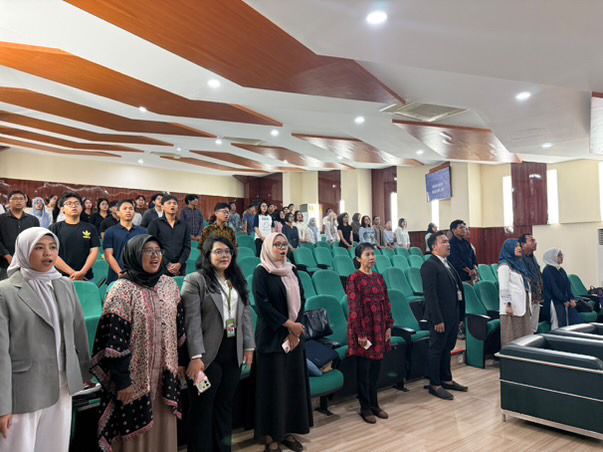
On September 26, 2025, Turkish Airlines made headlines around the world after reaching an agreement to purchase 225 aircraft from Boeing, consisting of 75 Boeing 787s and 150 Boeing 737 MAXs — subject to engine contract finalizations.
This isn’t just a large purchase — it’s a strategic move that may have wide-reaching implications for both Turkish Airlines and the broader aviation sector. Below are several angles to understand why this deal is generating buzz globally.
Why This Matters
1. Fleet Modernization and Capacity Expansion
Turkish Airlines has been growing rapidly, benefiting significantly from its geographic position as a bridge between Europe, Asia, and the Middle East. Adding a large number of 787s and 737 MAXs helps them expand capacity on both long-haul and regional routes. Newer aircraft often mean better fuel efficiency, lower operating costs, and ability to open more direct routes. This could further strengthen Istanbul’s role as a global hub.
2. Economic & Trade Signals
Big orders like this send economic signals. For Boeing, this is a win in terms of production demand, job stability, and reinforcing trust among major airline carriers. For Turkey, it’s also a signal of financial confidence and links to global trade. Subsequently, considerations such as financing, local infrastructure readiness, and regulatory approval become critical.
3. Geopolitical Dimensions
Aircraft orders almost always have a political or diplomatic dimension. The announcement follows high-level talks between the leaders of Turkey and the United States. It underscores how trade in aerospace remains intertwined with foreign policy, export control negotiations (especially around engines), and national industrial strategies. This also has implications for supply chain diversification given global concerns about dependencies.
4. Environmental and Sustainability Considerations
Modern aircraft are typically more fuel-efficient and generate fewer emissions. If Turkish Airlines replaces older, less efficient jets with 787s and 737 MAXs, this could help reduce the airline’s carbon footprint over time—though that also depends on how much the new planes are flown and at what utilization rates. In an era where airlines are under increasing scrutiny over environmental impact, such fleet upgrades are part of broader expectations.
5. Industry Competition
Other major carriers are likely to react. Turkish Airlines’ expansion can reshape competitive dynamics on certain routes, prompting competitors to improve services, offer new routes, or invest in their own fleet renewals. Particularly in the Middle East, Europe, and Central Asia, this could shift travel patterns.
Potential Challenges & Risks
Delivery Delays & Engine Talks
The deal is “subject to engine talks,” which means there’s still negotiation risk. Delays, regulatory issues, or supply chain bottlenecks (for engines or other parts) could slow down implementation.
Financial Burden
Acquiring hundreds of large aircraft is capital-intensive. Turkish Airlines must ensure that financing is well-structured. Debt servicing, fuel costs, and market demand for additional capacity need to justify the investment. Economic downturns or fluctuations in travel demand (especially international) could put stress on such large investments.
Regulatory & Certification Hurdles
Each aircraft type must meet safety, environmental, and operational regulations both domestically and internationally. Maintenance and pilot training for new models add complexity and cost.
Fuel Price Volatility & Environmental Pressure
Even efficient modern aircraft depend on fuel, and future environmental regulations (carbon taxes, emissions rules) could affect operating costs. There’s also growing pressure from consumers and regulators for airlines to adopt sustainable aviation fuels (SAFs) or other innovations.
Global Implications
This order is more than just a business transaction; it reflects how the aviation sector is evolving. Airlines are making commitments to expand and modernize, often under pressure to reduce emissions and improve efficiency. Manufacturers like Boeing are judged not only by plane sales but also by their ability to manage geopolitical, environmental, and supply chain complexities.
For countries, these deals can become matters of national pride or industrial strategy (e.g., local maintenance, parts production, upskilling workforces). For travelers, this could mean new routes, better in-flight experiences, perhaps even lower fares if efficiencies are passed on.
Conclusion
The Turkish Airlines order of 225 Boeing aircraft is a major development in global aviation — one that signals growth, competition, and modernization. But its success will depend heavily on execution: how smoothly the deal is finalized, delivered, integrated, financed, and operated.
If handled well, it could reinforce Turkish Airlines’ global standing, influence regional air travel, and contribute to more efficient, perhaps more sustainable, air transport. It will be interesting to watch how this plays out in the next few years — not just for Turkey, but for airlines and aircraft manufacturers worldwide.








